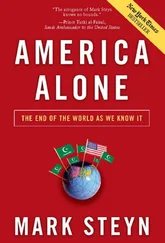None. In America, federal spending (in inflation-adjusted 2007 dollars) went from $600 billion in 1965 to $3 trillion in 2008. 22Regardless.
The Heritage Foundation put it in a handy cut-out’n’weep graph: until the Democrats accelerated up to Obamacrous Speed in 2009, it’s a near perfect straight line across four decades, up, up, up. 23Doesn’t make any difference who controls Congress, who’s in the White House—Democrat, Republican, bit of both. The government just grows and grows, remorselessly. A president of one party and a Congress of the other? Up and up it goes. So much for those sophists who hymn the virtues of “gridlock.” Every two years, the voters walk out of their town halls and school gyms and tell the exit pollsters that three-quarters of them are “moderates” or “conservatives” (a clear center-right majority) and barely 20 percent are “liberals.” 24
Sometimes, as in 1980, 1994, and 2010, they explicitly vote for small government. And then, on the Wednesday morning after the Tuesday night before, Big Government resumes its inexorable growth. Newt Gingrich and his dragon-slayers? According to a 2000 report by the Cato Institute, “the combined budgets of the 95 major programs that the Contract with America promised to eliminate have increased by 13 percent.” 25
That’s what’s happened since the Sixties. What of the future? The CBO ran the longer-term numbers: The “alternative fiscal scenario,” which factors in likely changes in policy, calculates that public debt will rise from 44 percent of GDP in 2008 to 716 percent by 2080. 26Then again, the CBO’s “extended-baseline scenario,” which assumes there will be no changes to current policy, says public debt will only rise to 280 percent by 2080.
It doesn’t matter which of these figures is correct, and it was a complete waste of time running the numbers. The worst case is 716 percent? And the best is 280 percent? That’s a choice between dead and deader. Who cares?
If either number is right, there isn’t going to be a 2080, not for America.
You can spend a month ploughing through the CBO statistics, but the numbers don’t matter because they all make the same point: under no likely scenario does America’s debt burden do anything but go up. Whether it’s Cloud-Cuckoo Land up or Planet Zongo up is mere details. Nothing is certain but debt and taxes. And then more debt. If the government of the United States had to use GAAP (the “Generally Accepted Accounting Practices” that your company and mine and the publishers of this book have to use), Uncle Sam would be under an SEC investigation and his nephews and nieces would have taken away the keys and cut up his credit cards. By 2010, the federal government was issuing about $100 billion of Treasury bonds every month—or, to put it another way, Washington is dependent on the bond markets being willing to absorb an increase in federal debt equivalent to the GDP of Canada or India—every year. 27While India’s growing its economy, we’re growing our debt to match. We’re asking the world to dump the equivalent of a G7 nation into U.S. Treasury debt every Christmas.
So let’s take it to the next stage: we know American government has outspent America. What happens if it outspends the entire planet?
John Kitchen of the U.S. Treasury and Menzie Chinn of the University of Wisconsin published a study in 2010 entitled: Financing U.S. Debt: Is There Enough Money in the World—and At What Cost? 28
The fact that sane men are even asking this question ought to be deeply disturbing. As to the answer, foreign official holdings of U.S. Treasury securities have usually been less than 5 percent of the rest of the world’s GDP.
By 2009, they were up to 7 percent. By 2020, Kitchen and Chinn project them to rise to about 19 percent of the rest of the world’s GDP, which they say is… do-able .
Whether the rest of the world will want to do it is another matter. A future that presumes the rest of the planet will sink a fifth of its GDP into U.S. Treasuries is no future at all. But on Big Government’s streetcar named Desire we have come to depend on the kindness of strangers.
If something cannot go on forever, it can still go on long enough—especially if you enjoy bookkeeping advantages the government denies to the private sector. And the idea that “you and your colleagues will take action” to reverse it, or at least end it, or maybe just slow it down a wee bit, flies in the face of that Heritage graph. The one thing that can be said for certain is that the political class, whether led by Barack Obama, Harry Reid, and Nancy Pelosi, or the usual reach-across-the-aisle Republican accommodationists, or even the Gingrichite revolutionaries of 1994, will not take meaningful, transformative action.
That leaves Director Elmendorf’s alternative scenario. What was it again? Oh, yeah:
Some collapse down the road.
And you’ll be surprised how short that road is.

TEKEL…
Two propositions. First, Adam Smith, after the Battle of Saratoga, in reply to a friend despondent that the revolting colonials were going to be the ruin of Britain:
There is a great deal of ruin in a nation. 29
Alternatively, Samuel Huntington in his final book, Who Are We?
A nation is a fragile thing. 30
Who’s right?
Smith’s view is correct for a lot of European countries: The “deal of ruin”—incremental decay—is seductive. In some ways, the most pleasant place to live is a colossus in gradual decline. Great powers aren’t Sudan or the Congo, where you’re sliding from the Dump category to the Even Crummier Dump category. Genteel decline from the heights can be eminently civilized, especially to those of a leftish bent. Francophile Americans passing through bucolic Provençal villages with their charmingly state-regulated charcuteries and gnarled old peasants wholly subsidized by the European Union’s Common Agricultural Policy can be forgiven for wondering if global hegemony is all it’s cracked up to be. Okay, the empire busted up, but the capital still has magnificent architecture, handsome palaces, treasure houses of great art, a world-class orchestra, fabulous restaurants, stylish women…. You still have the opera house, but it’s easier to get a parking space. Who wouldn’t enjoy such “decline”? To be sure, everything new—or, anyway, everything new that works—is invented and made elsewhere. But still: you benefit from all the cultural inheritance of greatness without being troubled by any of its tedious responsibilities. Much of Europe feels like that: a sidewalk café, chestnuts in blossom, have another coffee and a pastry, and watch the world go by. Life is good, work is undemanding, vacation’s coming up, war has been abolished. Somewhere beyond the horizon is a seething Muslim ghetto of 50 percent youth unemployment, whence the men swagger forth at sundown to torch the Renaults and Citroëns of the infidels. 31But not in your arrondissement . And not even on the Friday afternoon drive to your country place. What’s to worry about?
There may be a deal of it, but in the end ruin is the natural condition of the nation-state: three of the five permanent members of the Security Council have endured revolutionary upheaval and/or constitutional collapse since their “permanency” was established by the United Nations in 1945. Four of the G7 major economic powers have constitutions dating back barely half a century.
And, even if you escape (as most nations do not) coups, invasions, civil wars, and/or occupations, there arrives the moment when ruin comes to close the deal. Whether decline will seem quite so bucolic viewed from a Jersey strip mall rather than the Auvergne remains to be seen. But, either way, gradual decay is not the way it will go. American ruin will not be like France’s or Austria’s.
Читать дальше












